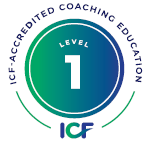
Meet Your Mentor Coach
Deborah Brown-Volkman, PCC
Career Coaching Mentor
No matter the state of the economy, or where you find yourself in the world, the demand for career coaches will be there. Individuals will always need a career coach whether they’re looking for a new job, are transitioning to a new career, or are seeking tools to deal with challenging situations in the workplace. If Career Coaching is your passion, then learn as much as you can about how to be successful and proficient in this exciting and rewarding profession.
BECOME A CERTIFIED CAREER TRANSITIONS COACH*
Class Details
Program Highlights
✅ This program walks you through the process, step-by-step, of how to coach clients to a successful, sustainable and satisfying career in just 7 weeks.
✅ All classes are 90 minutes long and include recordings, detailed class notes, worksheets, web sites, book suggestions and articles.
✅ You will walk away with a career coaching program/process that you can charge for and use to coach your clients.
✅ You will receive 10.5 ICF Approved Continuing Coach Education Units* in the category of Core Competencies.
✅ Learn practical advice from someone who has been a career coach for 20+ years and has taught this program for CTA numerous times since 2006.
Why Deborah Teaches This Program
Deborah’s story…
Before becoming a career coach, I worked in Corporate America. My job was in New York City and I was excited to be in the big city doing big city things. But over time, that excitement faded. And even though I was successful in my career, I grew tired of the politics and how hard it was to get things done.
Everyday, I was losing more of me.
I had this nagging feeling that I was supposed to be doing something else.
I thought it was me, my fault that I would start a job and be happy in the beginning and over time become unhappy.
I had friends and family tell me I was too fickle or I expected too much…
“What is wrong with you?
“Why are you always switching jobs?”
I did not know the answer. I just knew I was unhappy.
So, I made a decision. I would do something different. I knew once I decided, the answers would come. And, they did. I put myself on a journey to the unknown to find a career I love. This is how I became a career coach.
When I found it, I knew it was where I was supposed to be.
Many people ask me:
“How can I find where I am supposed to be too?”
“How can I become a certified career coach too?”
I know how much being a career coach means to me, and thus, this program was born.
*Students who have previously completed an ICF Approved coach training program are eligible to receive the designation of Certified Career Transitions Coach. In addition, all students, not just those who have completed an ICF Approved coaching program, will earn 10.5 ICF Approved Continuing Coach Education Units in the category of Core Competencies.
Here’s What is Covered in Your 7-Week Career Coaching Mastery Certification Program
- Week 1: Vision
- Week 2: Self-Discovery
- Week 3: Research and Exploration
- Week 4: Planning and Goal Setting
- Week 5: Implementation
- Week 6: Goal Achievement and Maintenance
- Lesson 7: Role-Playing and Practice
Many visions fail. Learn how to create a vision for yourself and for your clients that doesn’t just feel expansive and energetic in the moment, but lasts a lifetime. You will gain an understanding of the importance of a vision and how it keeps you (and your clients) motivated and inspired.
- Learn why vision matters and how it guides the rest of the coaching process.
- Discover the nuts and bolts of a successful vision.
- Understand why some visions work and others do not.
- Find out how to get and refine your own vision and how to help others experience theirs.
- Help clients understand themselves better. We talk in detail about career assessments, and how to help clients identify their strengths, weaknesses, talents, transferable skills, mission, and purpose. You will gain understanding of how to help your clients figure out what their passions are and what they want to do with the rest of their lives.
- Recognize what (really) are strengths, talents, and skills and the role and value of each concept in career coaching.
- Determine the leading methods for career assessment and how to use them.
- Become aware of your own strengths, talents, skills, and how to help your clients find and understand theirs.
- Explore the research phase. Research is important. Clients need to do legwork first before they can make a decision about their next career move. Some clients are good at research, and others will not know what to do or where to go. You will gain understanding of how to help clients cut down on the time it takes to do research as well as where to direct clients to the best places to find information.
- Identify what is involved in research and exploration, why is it important, and how can it be used to help your clients get what they want in their career.
- Learn how to research and explore effectively.
- Identify the components of a winning career plan. You will gain understanding of the planning process as well as how to help your clients create a plan that is sustainable and effective.
- Discover the planning process, why is it important, and how can it be used to help your clients get what they want in their career.
- Master the three primary pieces of planning which are:
- What does a client want?
- When will your client get what they want?
- How will your client get there?
- Pinpoint how to keep clients on track once they have created their plan. You will gain understanding of how to help your clients implement their goals, how to make room for their goals, as well as how to stay on track and focused.
- Learn what implementation is, why it is important, and how it can be used to help clients get what they want in their career.
- We will discuss accountability and tools for time management, prioritizing, getting organized, and using a calendar for goal achievement.
- Many clients believe that the coaching process is over once the goal is over. This is not true. Once clients get out of reactive/problem-solving mode, they can take on additional goals. They can go into pro-active mode and live their dreams. You will gain understanding of why the coaching process continues and how to help your clients persevere and not fall into old habits and routines.
- Understand goal achievement and maintenance, why they are important, and how they can be used to help clients stay on track after they have -reached their goals.
- Explore how to help your clients keep making progress while creating the next steps after they achieved their goals.
- Inspire your clients to take on new challenges and look into the future with excitement and enthusiasm.
- Practice what you have learned over the past six weeks. You will gain understanding of how to coach your career transition clients as well as learn additional coaching skills through both class participation and listening to others. This will also be an opportunity to ask questions or get coaching in any area you are stuck or foresee yourself getting stuck in the future. You will gain confidence that you can coach your career transition clients well and will be ready to go.
- Role-play, practice and debrief.
- Review material led over the course and answer questions that have not been answered yet.
- Gain clarity regarding what you have learned in the course.
- Adopt best practices on implementing the material you have learned with your clients.
Accreditation
The International Coach Federation and Coach Training Alliance adhere to a form of coaching that honors the client as the expert in his/her life and work, and believes that every client is creative, resourceful, and whole
Standing on this foundation, the coach’s responsibility is to:
- Discover, clarify, and align with what the client wants to achieve
- Encourage client self-discovery
- Elicit client-generated solutions and strategies
- Hold the client responsible and accountable
Requests must be made in writing, postmarked and mailed to:
Coach Training Alliance
217 West Olive St.
Ft. Collins, CO 80521




